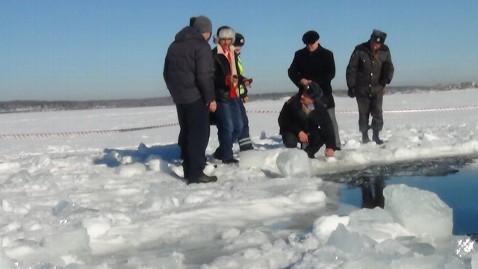Russian Meteor: Close Encounters and Plans to Prevent Impacts
MOSCOW - As if Friday's massive meteor explosion over central Russia weren't enough, just hours later a large asteroid buzzed dangerously close to Earth.
And that evening, the California sky was lit up by a fireball, apparently entering Earth's atmosphere.
It's a barrage from space that has people asking: Are we ready for the big one?
Nearly 100 tons of space debris enters Earth's atmosphere every day. Most of it burns up or falls harmlessly into the ocean, but experts still worry that eventually something big will come our way.
PHOTOS: Meteorite Crashes in Russia

Image credit: Chelyabinsk Region Branch of Russian Interior Ministry/HO/EPA
The prospect of Earth getting hit by a giant hunk of space rock is concerning enough that the United Nations is gathering top minds in Italy this week to discuss it.
Scientists say the idea of blowing up an asteroid - as Bruce Willis' character did in the movie "Armageddon" - is pure Hollywood fantasy. Even if we could hit it, it's unlikely to stop it.
Existing sky-watching programs run by NASA and others can only spot the biggest asteroids, not the small ones that sneak up on us.
But fear not, citizens of Earth. Scientists have a plan.
RELATED: Russian Meteor: Rushing to Cash in on the Blast
One group, the non-profit B612 Foundation, proposes sending a telescope, called Sentinel, into space to detect incoming objects decades before their orbits intersect ours. Then, unmanned spacecraft could fly to them and nudge them clear of Earth's path.
The group is trying to raise $200 million to make it happen and hopes to launch the telescope by 2016.
Another project, proposed by the University of Hawaii, aims to give earthlings a heads-up when necessary, starting by 2015.
RELATED: Meteor Events: Rare, but Dangerous
It is called the Atlas program, and the plan is to deploy a string of telescopes that would search for even smaller objects in the sky, hoping to be able to give people at least a few day's notice that could allow time for an evacuation.
Until then, better keep Bruce Willis on speed dial.